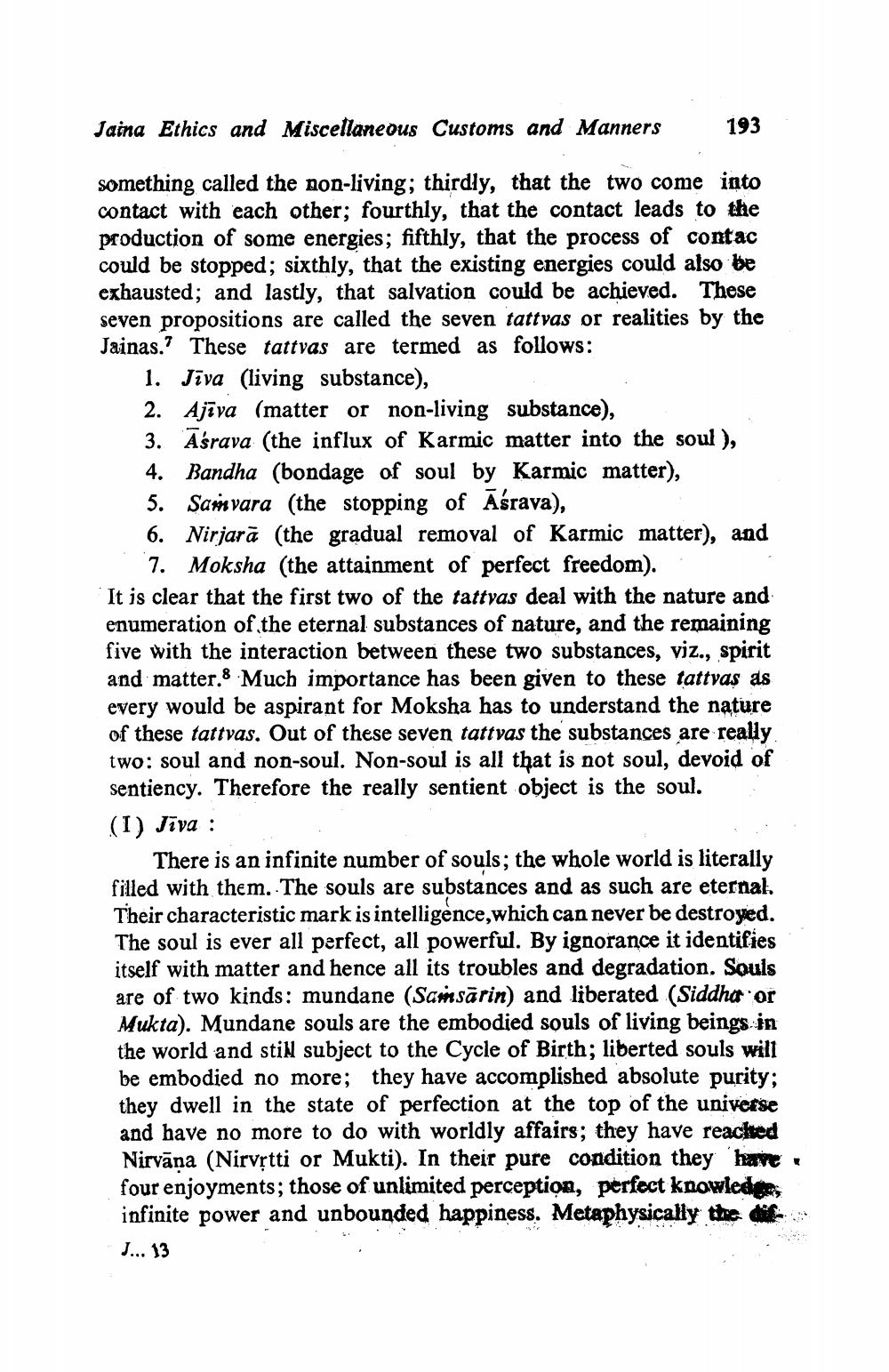________________
Jaina Ethics and Miscellaneous Customs and Manners
something called the non-living; thirdly, that the two come into contact with each other; fourthly, that the contact leads to the production of some energies; fifthly, that the process of contac could be stopped; sixthly, that the existing energies could also be exhausted; and lastly, that salvation could be achieved. These seven propositions are called the seven tattvas or realities by the Jainas. These tattvas are termed as follows:
193
1. Jīva (living substance),
2. Ajiva (matter or non-living substance),
3. Asrava (the influx of Karmic matter into the soul),
4. Bandha (bondage of soul by Karmic matter),
5. Samvara (the stopping of Aśrava),
6. Nirjara (the gradual removal of Karmic matter), and 7. Moksha (the attainment of perfect freedom).
It is clear that the first two of the tattyas deal with the nature and enumeration of the eternal substances of nature, and the remaining five with the interaction between these two substances, viz., spirit and matter. Much importance has been given to these tattvas as every would be aspirant for Moksha has to understand the nature of these tattvas. Out of these seven tattvas the substances are really two: soul and non-soul. Non-soul is all that is not soul, devoid of sentiency. Therefore the really sentient object is the soul. (1) Jiva :
There is an infinite number of souls; the whole world is literally filled with them. The souls are substances and as such are eternal. Their characteristic mark is intelligence, which can never be destroyed. The soul is ever all perfect, all powerful. By ignorance it identifies itself with matter and hence all its troubles and degradation. Souls are of two kinds: mundane (Samsārin) and liberated (Siddha or Mukta). Mundane souls are the embodied souls of living beings in the world and still subject to the Cycle of Birth; liberted souls will be embodied no more; they have accomplished absolute purity; they dwell in the state of perfection at the top of the universe and have no more to do with worldly affairs; they have reached Nirvana (Nirvṛtti or Mukti). In their pure condition they have four enjoyments; those of unlimited perception, perfect knowledge, infinite power and unbounded happiness. Metaphysically the
J... 13




